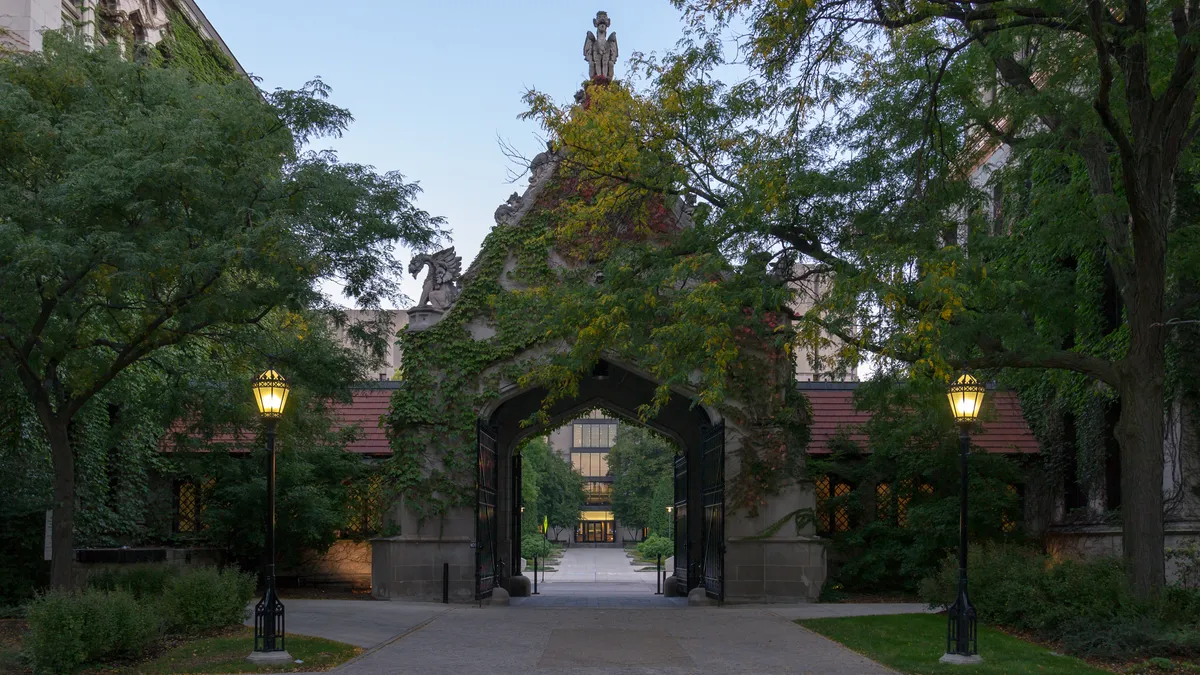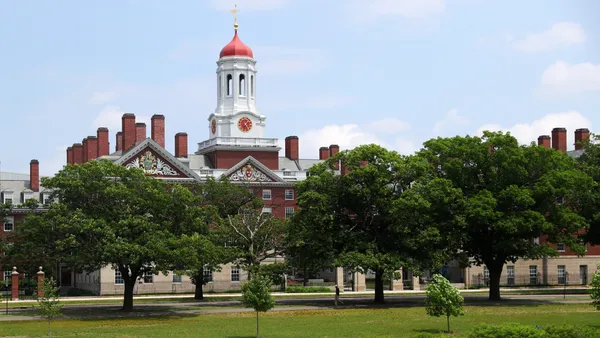Dive Brief:
- Pennsylvania’s community colleges and its public university system are set to each receive a 6% increase in state funding under a new budget for the 2024-25 fiscal year signed on Thursday by Gov. Josh Shapiro.
- Legislation signed Thursday will also create a performance-based funding model for Pennsylvania’s four state-related institutions — Pennsylvania State University, Temple University, Lincoln University and the University of Pittsburgh — which receive some state money but largely operate independently. The new funding scheme is set to take effect in the 2025-26 year.
- For the 2024-2025 year, general support for some public universities will remain flat. Penn State’s public funding once again was left unchanged at $242.1 million — which falls well short of Shapiro’s previous proposal to increase state-related universities’ budgets by 5% this year, the institution noted in a news release.
Dive Insight:
Earlier this year, Shapiro unveiled an ambitious plan to overhaul the state’s higher education system that contained both budget increases and a consolidation of Pennsylvania’s community colleges and state university system under a single governance structure.
The new legislation includes some of the governor’s hoped-for measures, such as the performance-based funding model for state-related institutions.
The budget also has a $120 million hike in funding for scholarships and grants aimed at making college more affordable in the state and a $30 million increase to the state’s career and technical education program to support apprenticeships.
It also provides for a $15.7 million increase for the state’s community colleges and a $35.1 million for the Pennsylvania State System of Higher Education, known as PASSHE.
Instead of uniting PASSHE and the state’s 15 community colleges, the budget creates a state board of education with a mandate to plan and advance higher education policies for the state. The new board will “provide greater support and coordination and ensure our institutions of higher education meet Pennsylvania’s workforce needs,” according to a release from the governor’s office.
Back in January, Shapiro lamented “30 years of disinvestment” in higher education that has left many of the state’s institutions “running on empty” and students without affordable paths to degrees.
On Thursday, Shapiro again alluded to “decades of inaction” and said that he and lawmakers have taken “meaningful action to invest in higher education.”
However, the fiscal 2025 budget leaves some of the state’s largest institutions without an increase, despite rising institutional costs for higher education.
For instance, Pitt will receive about $151.5 million, the same funding it got for the 2023-24 academic year. Temple’s appropriations were also left flat from last year, at $158.2 million.
Penn State noted that it has not seen an increase in public funding since the 2019-20 academic year. The university further pointed out that state appropriations have gone from making up 62% of Penn State’s education budget prior to 1970 compared to 10% today. Tuition and fees now account for 72% of its education budget.
“The funding we receive from the commonwealth is critical to our public mission to serve Pennsylvania students at our campuses across Pennsylvania,” Penn State President Neeli Bendapudi said in a statement Thursday. “Our students and families rely on this funding and the significant cost savings it provides through our in-state tuition rate.”
Other institutions will be getting a boost though. For example, the Pennsylvania College of Technology, an affiliate of Penn State, is set to receive a more than 13% increase in state funds, bringing the total to about $34 million for the 2025 fiscal year.













